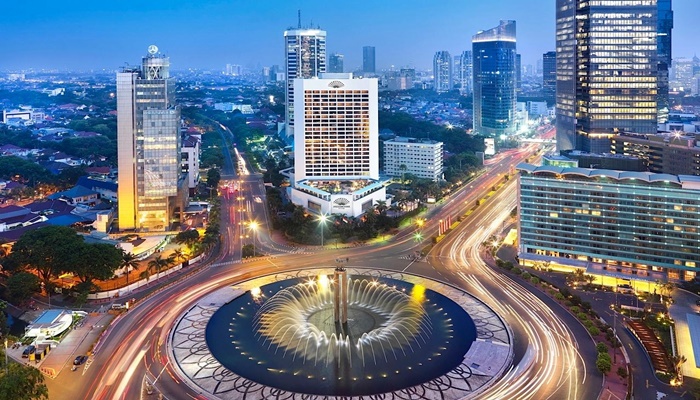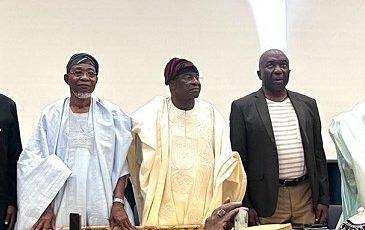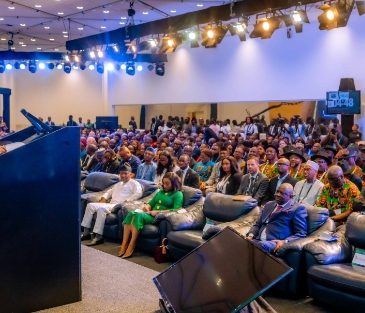
The Lagos State government has said it would dismantle more roundabouts and junctions on roads across the state to solve the perennial Lagos traffic and reduce the travel time of commuters in the state.
Mr Frederic Oladeinde, the Commissioner for Transport, said during a media roundtable that the roundabouts and junctions were built when the state’s population was 3-5 million.
At the current population of 22 million, according to him, they now compound the traffic situation, instead of helping solve them.
“You will discover that most of our roundabouts are now bottlenecks, rather than solving problems they are now creating problems,” Oladeinde said.
“And what the current administration has done is to locate all the 60 gridlock points, that is the roundabouts and junctions that are causing problems and what we are doing is to reconfigure most of them.
“For example, Allen roundabout was a roundabout, and when we were about five million people it was a very nice roundabout, I remember about 20 years ago going to Allen roundabout was like going abroad. But Allen roundabout has now become a choke point.
“So, we simply had to do was to take it out, reconfigure so that we can increase the capacity of that roundabout. You will agree with me that right now, going through Allen roundabout, you won’t spend more than five minutes as opposed to about 30-45 minutes that we used to spend just to traverse that roundabout.
“We are now moving further to Abraham Adesanya, which is another choke point, and we’ve taken out that roundabout and in the next one month we will complete it. That will complement the Jubilee Bridge that was developed around sangotedo, Ajah area.
“We’ve taken out the roundabouts at Lekki 1 and 2. As soon as we synchronise them with the rest of the traffic lights along that expressway, people will be able to move seamlessly.”
The roundtable, organised by the Cyno Group, focused on the Impact of the 2021 Lagos State government Budget Proposal on the Economy and Youth Empowerment.
The participants included Oladeinde; Folashade Adefisayo, commissioner for education; Abisola Olusanya, commissioner for agriculture; Rabiu Olowo, commissioner for finance; Sam Egube, commissioner for economic planning and budget; Olatunbosun Alake, special adviser on innovation and technology; and Aramide Adeyoye, special adviser on works and infrastructure.
Oladeinde said the population of Lagos would rise to 35 million in the next ten years, generating 40 million trips daily, and, currently, 97 per cent of transportation is on road.
“It’s important that we diversify the trips that we make. Of the trips that we make, 13.2 million that we make today are public transport trips of which Danfos (buses) cater for 80 per cent, not a good story.”
The commissioner said the solution to the perennial traffic congestion in Lagos is the development of a rapid mass transport system that includes rail, BRT and water.
For the rail line, he said the Lagos State government has ramped up the development of the Blue Line, especially from Marina to Mile 2, which will eventually end up at Okokomaiko.
“But the first 12 kilometres will be operational in 2022 and from Mile 2 to Marina takes about two hours right now, by the time we implement that it will take 30 minutes.
“The Red Line is also a very important project which this government has embarked on. It’s very important because that corridor caters for about a million trips and with the fact that the federal government is building that corridor to actually develop the Lagos-Ibadan rail line, the Lagos State government saw the advantage in collaborating with the federal government in sharing that corridor.
“And so we have signed the sharing agreement, all negotiations have been done, the Lagos state government will be adding some more stations. The federal government are developing three stations, that’s Ebute Metta, Iju, and Agbado. Lagos State will be incorporating Oyingbo, Ikeja, Yaba, and some other stations just to be sure we are able to move people from Agbado to Oyingbo in 30-35 minutes rather than the 2-4 hours that people are experiencing right now.
“And once that Red Line is completed, it will be able to cater for 450,000 passengers per day. That line will eventually end up in Marina, but the first stage is to develop Agbado to Oyingbo section.”
Oladeinde said the government is looking up to the private sector for the development of the Green Line (Marina to Lekki Free Trade Zone), Orange Line (Ikeja to Agbowa), Yellow Line (Ota to National Theatre), Purple Line (Redeemed to LASU), and a monorail that would take care of Ikoyi and Victoria Island.
“With all these in place, people will be able to book 3-4 meetings a day rather than one meeting a day because of traffic.”
For road transport, Oladehinde said the government’s plan is to reform the bus sector in such a way that Lagos will be divided into seven zones and “bucket of routes” would be franchised to regulated operators.
“What we want to do is to move away from this one bus owner to a corporation that will run bus transport in Lagos. So, we have started with Primero, we have also brought in TSL, and then over time we will ramp up.
“For the Danfo drivers, the plan is to get them to form a cooperative. The NURTW has formed a cooperative called ‘Amalgamated’ and so that will now become an entity that we will give a franchise to.”
Governor Babajide Sanwo-Olu, in August, launched the Cowry Card, an e-ticketing platform that would automate fare payment and create smart mobility through a cashless pre-paid card.
Meanwhile, Oladeinde said the government is working with the waterways authority to use the card on water, “and when the rail comes, you’ll be able to use it too.”
“The water terminals will be linked to a bus station, so that as you get off the terminal, you are able to board your bus and get to your final destination.”
The commisisoner said the government was developing ‘the Last Mile,’ because commercial motorcyclists (popularly known as Okada) and tricycles (Keke Marwa) were not part of the state’s transport masterplan.
“The Last Mile will take the place of Okadas and tricycles, it will take you into the inner community and into the inner roads, and these are what we call the local government roads. So, we are launching a set of buses in the next one month.
“We got a private investor to set up a plant. They’ve started manufacturing some of the buses here. We have another investor that is coming and this government has invested in about 2,000 last mile buses and we are ramping it up to 5,000 in 2021.”






